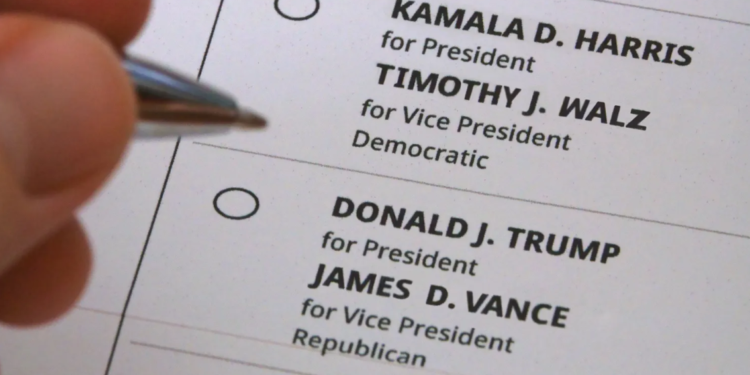Nov 7, 2024 Story by: Editor
The Republican Party’s long-standing efforts to attract a more diverse base culminated in this Tuesday’s election, where shared grievances among working-class Black, white, and Latino or Hispanic voters without college degrees played a pivotal role. Republicans tapped into these frustrations while simultaneously criticizing diversity, equity, and inclusion (DEI) initiatives. Their campaign rhetoric targeted “woke-ism” to counter Democrats’ attempts to address racial disparities and resource inequities.
On the campaign trail, racially charged language shocked some voters while energizing others. Public debates included inflammatory discussions, such as allegations about Haitian immigrants eating pets, fears of immigrants taking jobs from Black Americans, and rhetoric framing majority-Black cities as liabilities instead of assets. Despite these divisive tactics, the concept of equity remains vital, symbolizing the ideal of a fair playing field central to the American Dream.
Democrats struggled to connect with working-class voters across racial lines, partly due to their narrow focus on issues impacting Black and Latino or Hispanic communities. Vice President Kamala Harris’s “Opportunity Agenda” for Black men proposed significant measures, including 1 million forgivable loans for Black entrepreneurs, but faced criticism amidst ongoing lawsuits challenging race-specific remedies. Critics argue that this approach to identity politics may have contributed to Democrats’ significant electoral losses.
Writer Thomas Chatterton Williams noted in a social media post, “The fact that so many Americans of all ethnicities, geographies and colors wanted to see Democrats pay a resounding price…has to be taken seriously.” Similarly, a pre-election piece in The New York Times observed that identity politics has waned in influence since the post-George Floyd era. However, identity politics, whether racial or based on education levels, remained a key strategy for both parties in the 2024 election.
Economic discontent emerged as a unifying force among voters, especially those without a college degree. Support for Trump increased notably among Black and Latino or Hispanic voters, with his backing from non-college-educated voters climbing to 62% in 2024, up from 54% in 2020. This demographic, affected by trade policies like NAFTA and ongoing economic hardship, represents a multiracial working-class identity that Republicans successfully addressed.
Discrimination also remains a pressing concern, with Black and Latino or Hispanic voters facing disproportionately higher unemployment rates. For instance, in fall 2024, unemployment among white women stood at 4%, compared to 6.2% for Black women and 5.9% for Latino or Hispanic women. Disparities in the justice system compound these issues, with Black and Latino or Hispanic men receiving longer sentences for similar offenses compared to their white counterparts.
Moving forward, both Democrats and Republicans must embrace equity as a tool for national unity. While often dismissed as a divisive term, equity addresses systemic barriers that stifle economic and societal progress for all Americans. Policymakers must adopt concrete solutions that address discrimination and uplift marginalized communities, ensuring equitable opportunities for economic security and advancement.
The branding of equity as controversial distracts from its core purpose: fostering a fair society. Republicans must deliver on the economic security demanded by voters of all races. Avoiding the term “equity” will not erase the need to address systemic inequities, as the Democrats’ recent losses illustrate. For both parties, reckoning with racial and economic disparities is essential for fostering a prosperous and inclusive future. Source: Brookings

















